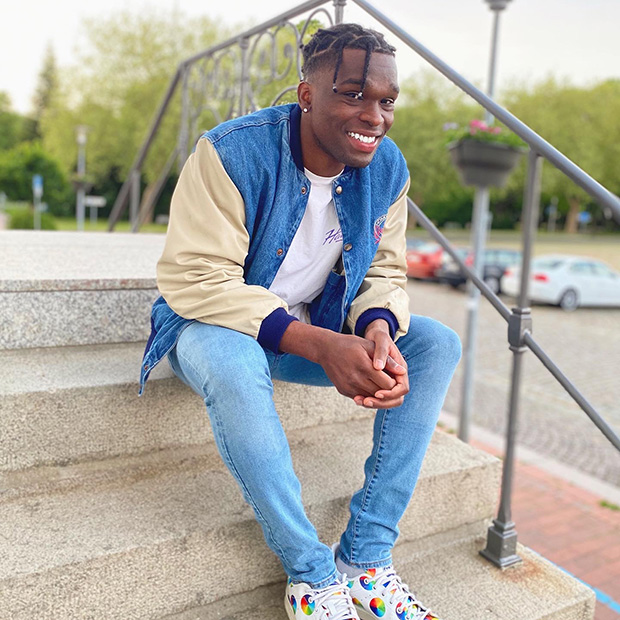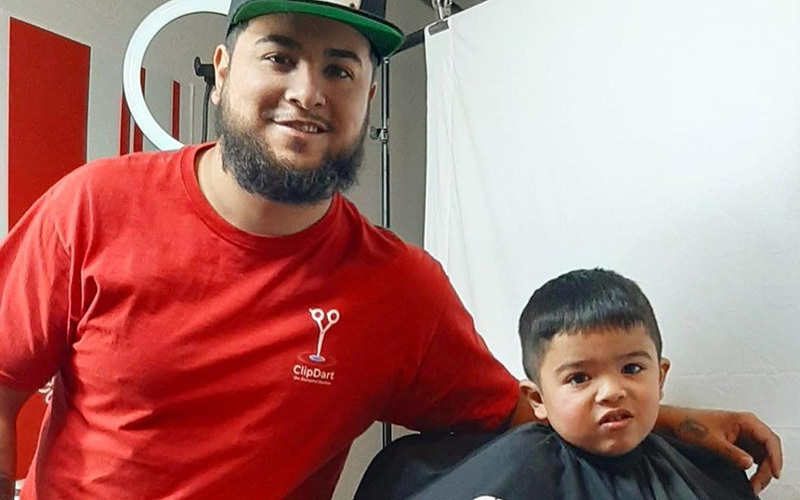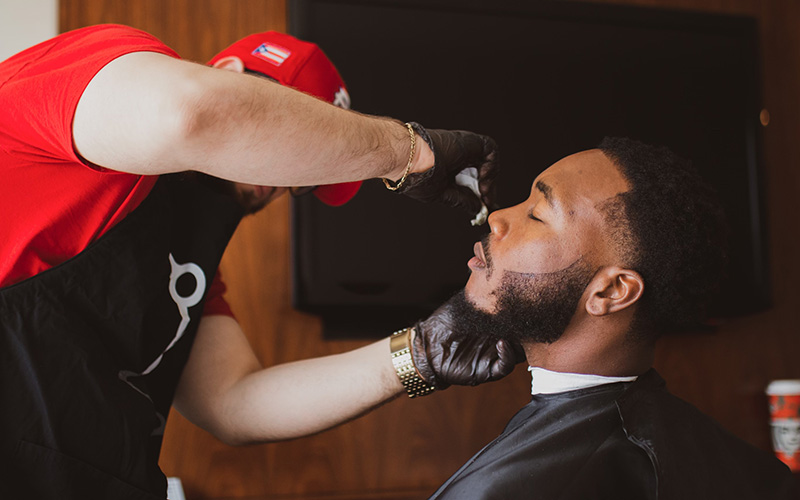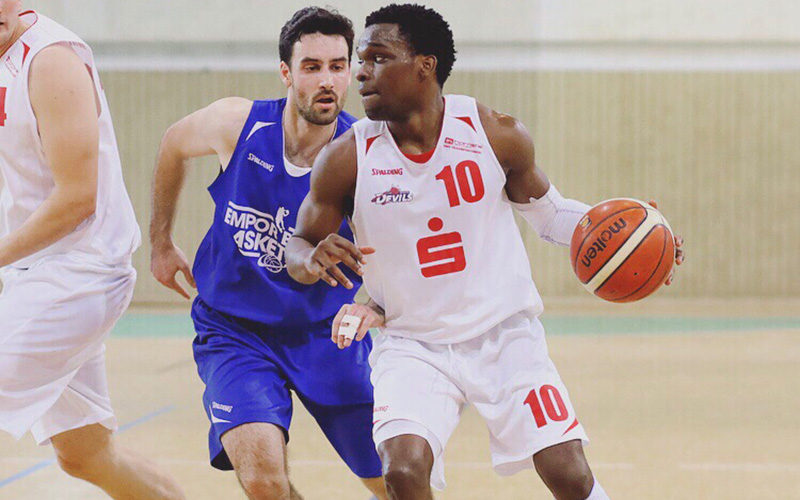Mobile app developed by alumnus brings barbers to students of color
May 10, 2021 — When Kyle Parker ’17 came to Grinnell College, he was excited to join such a diverse cohort of students. Eager for this new college experience, he didn’t anticipate how the difficulty in finding a barber who understood his hair needs would affect his psyche so deeply.
 Kyle Parker ’17
Kyle Parker ’17
“For Black and Latino people, part of our culture is our hair. Our barbers can be therapists. They provide safe havens in the community,” he explains. “Some people know their barbers as well as they know their parents. When you go away from that, you feel like a part of yourself is missing.”
Three years into his Grinnell experience, Parker wondered if other students of color felt similarly, so he surveyed first-year Black and Latinx students to assess their concerns. To his surprise, every student, regardless of gender, listed not finding a good barber or stylist at the top.
This revelation planted a seed. At Grinnell, Parker found himself asking basketball teammates to cut his hair or trying to navigate his full schedule and find transportation to get to a barbershop in Des Moines. So he reached out to his Des Moines barber and asked if he would come to Grinnell to provide haircuts. The result was overwhelmingly positive – the clients were multiple, and the barber’s travel and time were well-compensated.
Parker knew he was onto something. That year, he founded ClipDart, an on-demand mobile barber service for individuals who do not have reliable access to barbershop services that focus on their specific haircare needs.
Through ClipDart, clients work with licensed professionals who travel to them at a convenient time and location for their haircut. The service has resulted in a new way to do business for barbers and a boost in positive self-esteem for the clients, Parker says.
 A barber and a young boy pose for a photo during an event ClipDart organized in Phoenix where dozens of barbers provide their services free of charge.
A barber and a young boy pose for a photo during an event ClipDart organized in Phoenix where dozens of barbers provide their services free of charge.
Another part of ClipDart’s purpose is to give back to the greater community. The company has helped people who struggle with homelessness and hunger through a series of free haircut events in Arizona. On an advertised day, dozens of barbers provide their services free of charge to clients who also receive food and access to onsite portable showers.
“Clients leave with a renewed sense of dignity, while also having a meaningful connection with a haircare professional,” Parker says.
Parker’s initiative and drive can be traced back to his upbringing. He and his brother were raised by their mom who is his main inspiration. She was his first basketball coach and first teacher. Her own successful career trajectory, while simultaneously raising children, taught Kyle to defy societally-imposed boundaries. She encouraged him to explore his passion while also understanding that there will be many passions in life.
 ClipDart has held a series of free haircut events in Arizona where dozens of barbers volunteer their services.
ClipDart has held a series of free haircut events in Arizona where dozens of barbers volunteer their services.
As a high school senior, Parker traveled to Liberia to spend time among people in abject poverty who were emerging from a civil war. Upon his return, he observed many of his peers narrowly focused on their own neighborhood and issues. He wanted to provide them with an outlet for renewed hope. The resulting documentary he created and shared with schools in Chicago demonstrated the joy that can emerge from utter devastation and the importance of living each moment as it comes.
“Our crime rate was high in Chicago,” he says. “We were in our own civil war.”
After college, Parker joined the professional basketball circuit in Germany for two years to pursue that passion. Last spring, the global pandemic suspended his career path. Undeterred, he used this setback as an opportunity to hone in on what he began as a student at Grinnell. He returned stateside to establish his dream team that would help launch his new app. ClipDart recently finished Beta testing the new app.
 Kyle Parker ’17 played professional basketball in Germany for two years before the pandemic brought him back to the U.S.
Kyle Parker ’17 played professional basketball in Germany for two years before the pandemic brought him back to the U.S.
Parker admits to many sleepless nights as he and his team did their research to establish connections with colleges in the Midwest and eventually across the nation. He has traveled to dozens of campuses, hundreds of barbershops, and made a documentary of barbers across the world demonstrating how essential they are even in a global pandemic.
“Starting a business takes mental fortitude to trust it’s going to work out,” he says. “You have to believe people are going to be excited about your idea one day.”
—by Melanie Drake ’92